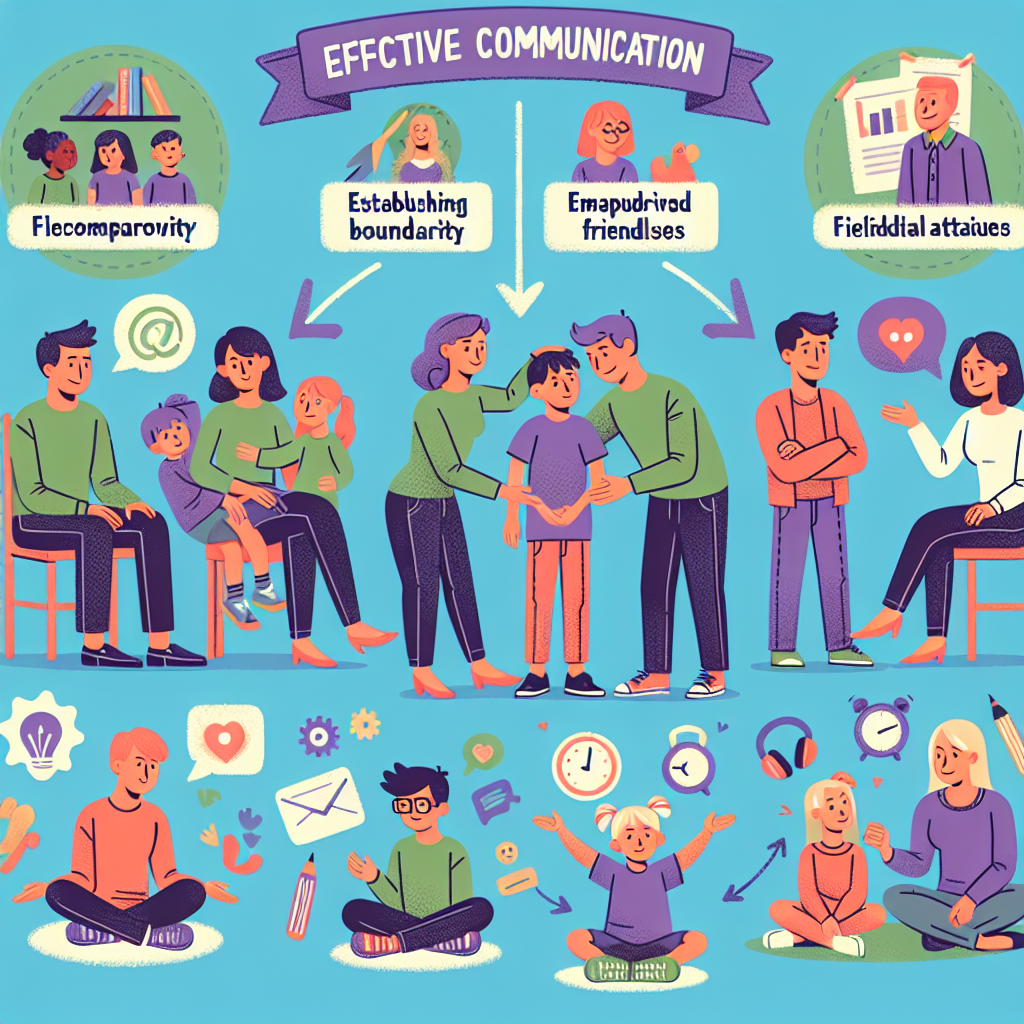Effective Communication with Children: Parent or Friend, Which Approach Works Best?
Communication between parents and children has always been a topic of interest and debate. In the challenging journey of raising a child, finding the balance between being a parent and being a friend is essential. This article aims to explore the different aspects of effective communication with children, highlighting the crucial role it plays in their development and identifying the approach that works best.
Basic principles in communicating with children
Before going into the details of each approach, it is important to establish some basic principles in communicating with children. A key principle is mutual respect. Children need to feel respected just as parents expect respect from them. It is also vital to be open and honest in our communication, to listen carefully to what children have to say and to ensure that our messages are clear and age-appropriate.
Another important aspect is consistency. Mixed messages or unexpected changes in attitude can confuse children and weaken trust in the parent-child relationship. It is essential to keep promises and set clear limits and consequences for the child's actions.
Establishing open and honest communication
It is essential to encourage open and honest communication with our children. We need to give them enough space to express their thoughts and feelings and show them that we care about what they have to say. Not only does this help them feel valued and heard, but it also creates a safe environment where they can discuss any topic, whether positive or negative.
The 'Parent' Approach - Authority versus Help
Being a parent is primarily about providing guidance, discipline and structure to a child's life. The 'parent' approach emphasizes learning respect for rules and relevant authorities. The parent sets clearly defined boundaries and shows consequences for the child's behaviors, thus helping to model strong values and a sense of responsibility.
However, it's important to remember that parenting isn't just about setting rules. We should also be present as emotional support, offering encouragement and praise when it is deserved and showing compassion and understanding for the child's feelings.
The 'Friend' Approach - Emotional Support and Mutual Understanding
On the other hand, the 'friend' approach involves adopting a more egalitarian position in the relationship with the child. The parent who chooses this approach will strive to create a bond based on trust and open communication, where the child feels comfortable sharing his problems and concerns.
Being your child's friend doesn't mean allowing them everything or giving up on providing guidance and support. Rather, it means finding a balance between being responsive to their needs and interests and providing the direction they need to grow into responsible, balanced individuals.
The Effects of the Two Approaches on Children's Development
Research indicates that a balanced approach that combines authority with empathy is most beneficial for the harmonious development of the child. Children who grow up in an environment where clear boundaries are set, but where communication and empathy are emphasized, are more likely to become well-balanced adults with a developed sense of responsibility and healthy social relationships.
The Role of Parents in the Formation of the Child's Communication Skills
A child's communication skills are greatly influenced by the parents' communication style. Therefore, it is essential that parents are aware of their own communication methods and how they influence children. By modeling positive communicative behavior, parents can implicitly teach children how to interact effectively with others.
Connecting on an Emotional Level with Your Child
Connecting on an emotional level with your child is another vital aspect of effective communication. This means learning to read non-verbal signals and respond appropriately to their emotional needs. Being a source of comfort and safety for your child will strengthen your relationship and encourage them to open up.
Conclusion
In conclusion, effective communication with children is a delicate balance between imposing rules and discipline as a parent and offering support and understanding as a friend. Both roles are crucial in shaping a healthy parent-child relationship and in developing the child's communication and social skills. By combining the 'parent' and 'friend' approaches, parents can create a family environment where children feel safe, valued and ready to face the world.
For more information or practical tips on how to improve communication with your child, visit our parenting section or subscribe to our newsletter for updates and useful resources.














































































































































